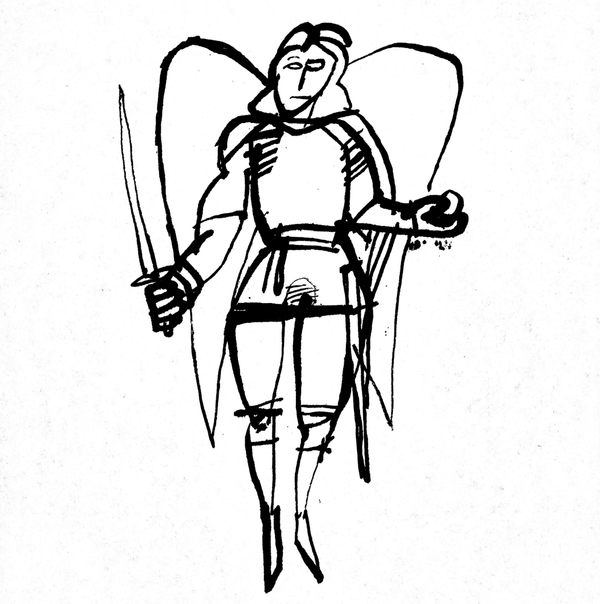When examining the political thought of St. Augustine of Hippo (354-430), it is essential not to view it as a comprehensive political theory on a par with others, whether Cicero’s or medieval or modern theories. Augustine was not a political theorist per se. One will not find a treatise on the proper government of the res publica in his writings. Nevertheless, he thought about the Christian commonwealth, the just society, and good government in the course of his writings, more so in his little studied letters to public officials than in his epic work City of God.
The starting point for an examination of his political thought is Christ, not political society or public officials. Augustine saw Christ as the only human being ever to have lived a fully virtuous life, including the Christian martyrs. This was a revolutionary theological proposition in his day, and has its origin both in his theology of original sin and in his conception of Christ’s two natures united in one divine person. No other human being was united to the Godhead in the way Christ was; hence, all other human beings were conceived in original sin. As a result, even baptized Christians bear its consequences in their souls: moral ignorance and weakness. These defects impede in great part the ability of human beings to make just decisions and to act virtuously. Christ’s grace enables Christians to act justly in part, but not completely.
In Augustine’s day, Christian authors tended to treat the most virtuous Christians, the martyrs, on a par with Christ insofar as their virtuous capabilities were concerned. They maintained that just as Christ overcame his fear of death through fortitude, the martyrs overcame their own fear and died as heroically as Christ, thus imitating Christ’s virtue perfectly. According to these writers, perfection in virtue was a goal that all Christians should aspire to achieve, because they all possess the natural capacity to do so. Virtues, such as courage or piety, could be perfected over the course of one’s life. St. Paul was the outstanding example of such achievement. He progressed from being a persecutor of Christians to being a martyr for Christ. According to this tradition, even those Christians who were not martyrs were thought capable of arriving at moral perfection in this life.
Augustine broke radically with this paradigm. The fundamental reason behind his objection stemmed from his conception of original sin. Augustine did not invent the theological concept of original sin; he inherited it from the earlier Christian tradition. However, he expanded the concept by reflecting on the psychology of sin. Accordingly, all human beings inherit original sin at conception. They experience this sin under two forms coupled together in the soul. Prior to baptism they are, on the one hand, incapable of discerning right from wrong (moral ignorance). On the other hand, they are incapable of choosing the good, that is, in behaving in a morally upright manner (moral weakness). Baptized Christians are healed from the sin itself, but not completely from these two consequences which linger in their souls and disrupt their moral lives.
“Even the martyrs feared to die.”
Christ’s grace, received through baptism and strengthened by pious practices including prayer, sorrow for sins and exposure to sacred scripture enable Christians to grow progressively in virtue, but not to perfect it in this life. Virtue is perfected in the soul only after death. All believers will continue to sin, and all will experience throughout their lives various forms of fear of death, which Augustine understood as a spiritual symptom of the soul’s lack of perfection in virtue. Augustine reasoned that if it were possible to perfect virtue in the soul, Christians would not fear death. But he concluded, against all Christian writers, that even the martyrs feared to die. Conversely, he argued, Christ’s apparent fear of death was a result of his dual nature, divine and human, which enabled him to take on to himself all human fear of death and, thus, to experience it vicariously in order to redeem all believers from sin and death. Most Christian writers in Augustine’s day did not view Christ in this radical manner.
